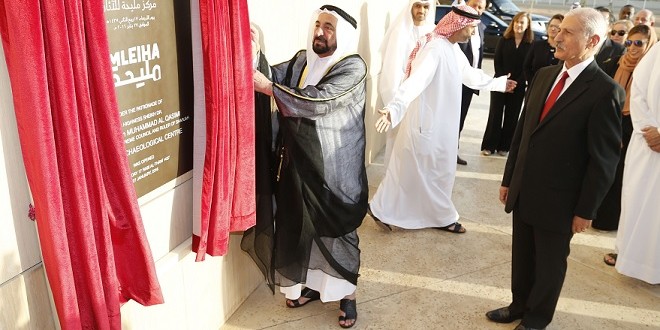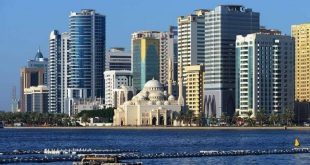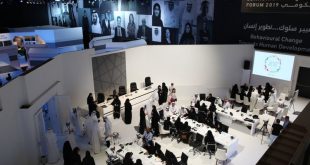The first phase of the Mleiha Archaeological and Eco-tourism Project, which includes the Mleiha Archaeological Centre, has been officially opened by His Highness Sheikh Dr Sultan bin Muhammad Al Qasimi, Member of the Supreme Council and Ruler of Sharjah. The tourism and heritage project, located in an area of natural beauty 50km to the east of Sharjah city, is being developed by Sharjah Investment and Development Authority (Shurooq).
The Mleiha Archaeological and Eco-tourism Project falls under (Shurooq)’s strategy to attract investment to the Central and Eastern regions of Sharjah, creating jobs and business opportunities for the local community. An estimated AED 250 million (US$ 69m) is expected to be invested in Mleiha over the next few years. Other Shurooq developments in Sharjah’s Central and Eastern regions include Kalba Eco-Tourism Project, the largest eco-tourism development in the region; Al Hisn Island, a leisure and tourist attraction located in Dibba Al Hisn; and Al Badayer Desert Camp, a desert tourism resort set in the picturesque sand dunes of central Sharjah.
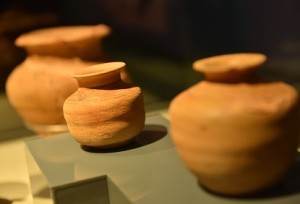
The first phase of the Mleiha Archaeological and Eco-tourism project includes the Mleiha Archaeological Centre, designed to allow visitors to gain a deeper insight into the history of the ancient settlement. The centre houses displays of historical artefacts, educational information, multimedia presentations, a café and lounge areas, an “I Love Sharjah” gift shop, other tourist facilities and administration offices.
First excavated in 1986, Mleiha is one of the most diverse archeological sites in the region with remains of Iron Age, Hellenistic and post-Hellenistic settlements. Artefacts found in Mlieha include pottery from Greece and goods from across the Arab world indicating that the area was a prosperous and influential entrepôt connected to other trading posts in the region by camel caravans. The site also shows evidence of iron and copper work and other manufacturing. Recent discoveries of a monumental tower tomb in Mleiha (the Umm Al-Nar Tomb), have dated the ancient settlement as far back as the 3rd millennium B.C.
Visitors to Mleiha Archaeological and Eco-tourism Project can expect a unique and rewarding experience, where they can learn about the rich archaeological and cultural heritage of the area and enjoy the breathtaking natural scenery. The destination will provide various sporting activities, guided tours to sights such as Fossil Rock, Camel Rock and the Valley of the Caves, hiking, biking, horse-riding and camping experiences such as the “Struggle for Survival” camp and the ”Hammock”camp.
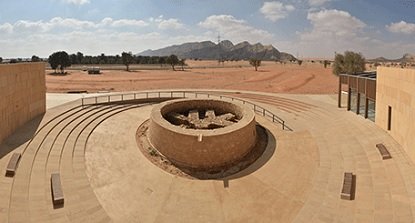
Shurooq will soon embark on phase two of the Mleiha project, which includes the creation of a 450 square kilometre Mleiha National Desert Park in collaboration with the UAE’s Environment and Protected Areas Authority (EPAA). There are also plans to reintroduce wildlife that was previously indigenous to the area, such as the Arabian Oryx, the Arabian Tahr, the Arabian sand gazelle (or Al Reem) and the Damani gazelle.
The second phase of the project will also create a Night Camping Park, a motel for overnight stays and an astronomy observatory in cooperation with the Sharjah Centre for Astronomy and Space Sciences. A number of locations are being allocated for tourist resorts and bed and breakfast style hotels, which will be offered to private sector investors.
Mleiha has been nominated for the UNESCO World Heritage List, in recognition for the area’s natural beauty, biodiversity and archeological treasures.
Source: Shurooq

